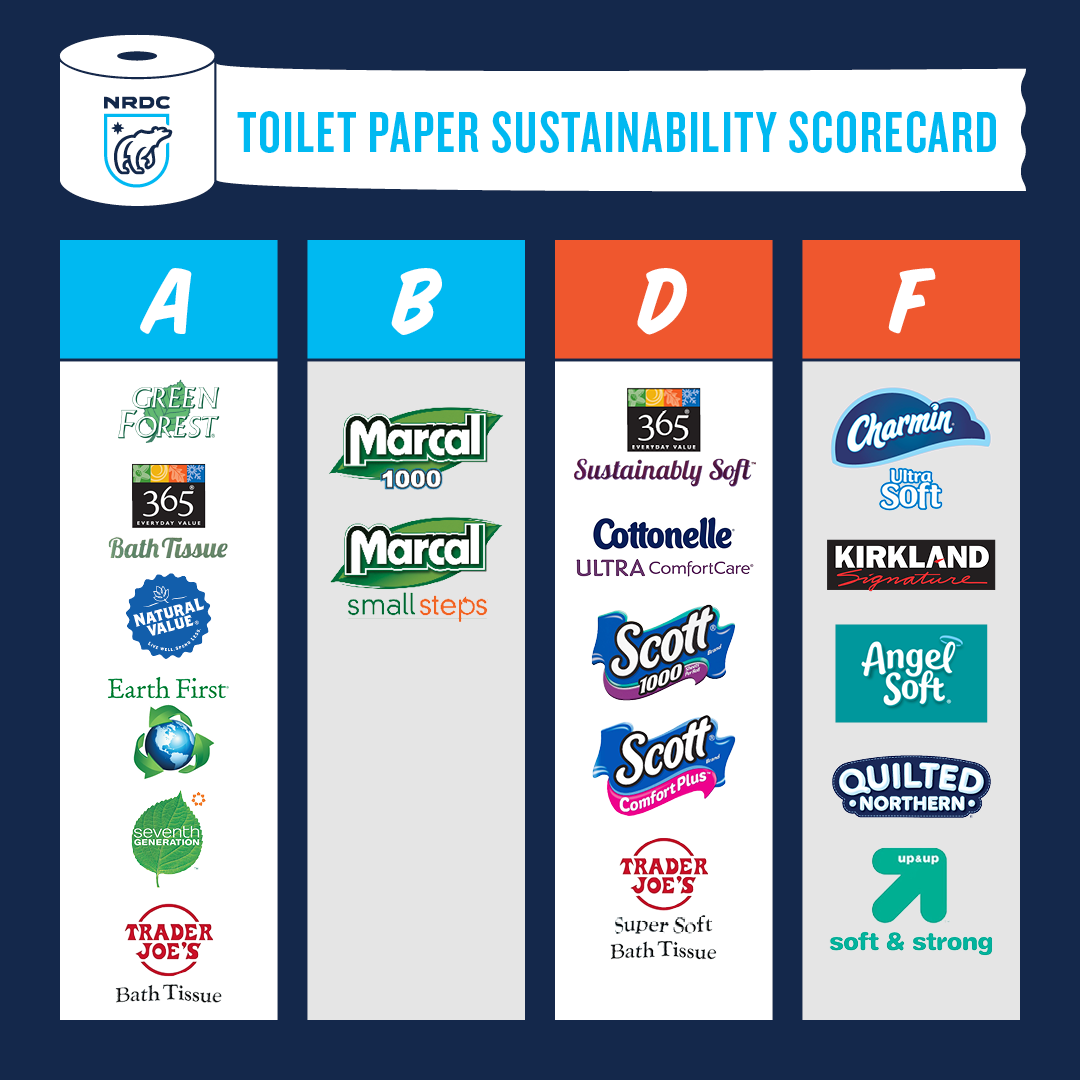
The Issue With Tissue and Toilet Paper: How the U.S. Is Flushing Forests Away

By Jennifer Skene and Shelley Vinyard
For most people, toilet paper only becomes an issue when it unexpectedly runs out. Otherwise, it’s cheap and it’s convenient, something we don’t need to think twice about. But toilet paper’s ubiquity and low sticker price belie a much, much higher cost: it is taking a dramatic and irreversible toll on the Canadian boreal forest, and our global climate. As a new report from NRDC and Stand.earth outlines, when you flush that toilet paper, chances are you are flushing away part of a majestic, old-growth tree ripped from the ground, and destined for the drain. This is why NRDC is calling on Procter & Gamble, the manufacturer of Charmin, to end this wasteful and destructive practice by changing the way it makes its toilet paper through solutions that other companies have already embraced.
The Canadian boreal forest is the largest intact forest in the world, holding immense value for Indigenous Peoples, species and the climate. It is home to over 600 Indigenous communities whose cultures have remained inextricably linked to the forest for millennia, and is habitat for iconic species like the boreal caribou, Canada lynx and American marten. In addition, the forest is critical in the fight against climate change, storing the carbon equivalent of nearly twice the world’s recoverable oil reserves in its soil.
Yet, this forest is under severe threat from industrial logging operations that push further into intact boreal forests each day. Between 1996 and 2015, more than 28 million acres of boreal forest were logged, an area roughly the size of Ohio. Each year, boreal logging emits hundreds of millions of tons of carbon into the atmosphere, dramatically accelerating the pace of climate change.
Much of this logging goes to feed global demand for tissue pulp—especially in the U.S. The Canadian boreal is a major source of northern bleached softwood kraft (NBSK) pulp, the U.S.’s most favored grade of virgin softwood pulp for tissue products. The U.S. is a particularly voracious consumer of tissue. Over the last 150 years, since toilet paper was first invented, Americans have developed an insatiable demand for these coiled white rolls. The average four-person household in the U.S. uses over 100 pounds of toilet paper a year, far outpacing the rest of the world and driving a dangerous “tree-to-toilet pipeline” whereby trees are converted into pulp, turned into toilet paper, and flushed away.
Fortunately, alternatives to the “tree-to-toilet” pipeline already exist. Tissue products made from recycled materials are far more sustainable because they do not rely on clearcutting forests and they emit one-third the greenhouse gases as tissue products made from virgin fiber.
Cut your toilet paper use with the best bidet toilet seats and attachments.
NRDC and Stand.earth have developed the scorecard below to inform consumers of which brands lead on sustainability, and which lag behind. Companies like Seventh Generation and Natural Value have brands that perform well because they use a high percentage of recycled material. The biggest tissue producers—Procter & Gamble, Kimberly-Clark and Georgia-Pacific—perform poorly because their brands like Charmin contain zero recycled content, irresponsibly relying exclusively on virgin pulp even as threats to our forests mount.

Consumers have power in their pocketbooks and can make a big difference through their toilet paper purchasing decisions. By following this scorecard, you can minimize the environmental toll your everyday toilet paper use is having on the planet. In addition, you can urge Procter & Gamble, which produces Charmin, to transition to a more responsible alternative by embracing tissue made from recycled content and sustainable alternative fibers for their at-home toilet paper.
Now, more than ever, we need to protect our remaining forests. Given toilet paper’s extreme cost to Indigenous Peoples, the global climate, species and forests like the boreal, tissue companies need to act as global citizens and usher the world into a more sustainable, sensible paradigm that does not rely on trees for creating their products. Just as we need to abandon coal, plastic straws and other devastating practices, the tree-to-toilet pipeline must end. For the good of communities, species, and the climate, we cannot afford to keep flushing our vital forest ecosystems away.
10 Most Intriguing #Forest Stories of #2018 https://t.co/X4uir1BpaG @WoodlandTrust @FSC_IC
— EcoWatch (@EcoWatch) December 26, 2018

 233k
233k  41k
41k  Subscribe
Subscribe 